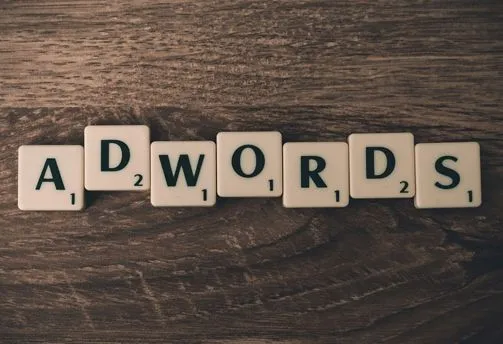Controlling 92% of the search engine market – and with over 63,000 searches every second, it's a no-brainer for any business to use Google to promote their business. The word 'Google' has even turned into a verb meaning 'to search for something on the Internet', so getting your business visible on a keyword search (that's related to your products and services) is therefore vital in this rapid-growing online world.
While Search Engine Optimisation (SEO) can help to provide your website with a solid structure to capture the attention of basic keywords, paid ads can provide a much wider net to bring in larger audiences, using keywords that are new, unique and/or related to your local area.
The problem is that if you don't get your PPC (Pay-Per-Click) Ads right on Google Ads, you could be paying for clicks that will essentially be loss leaders, leaving you confused, frustrated and out of pocket.
As PPC specialists, the team here at PPC Junkies have put together several tips that will help you get the best from your Per-Per-Click ads. So read on to learn how to avoid the common mistakes and instead get things right for a (hopefully!) vibrant 2022!
Top PPC Tips For 2022
Place all your keywords into relevant campaigns.
Every time you create an ad on Google Ads, there's a quality score metric that measures how relevant your ad copy is to the keywords you're trying to be found by. This means that it's important to place all your keywords in ads that are relevant – don't risk a lower quality score by squeezing extra keywords into text that isn't on the same point. If you have a bad quality score, you will end up paying more per click than you would if you had a good quality score.
Google Ads' quality scores are rated between one and ten, with one being the bad end of the scale – it isn't uncommon for people to end up paying more than four times per click than they would otherwise have to with a better score. The benchmark for Google is a five, but even then, you'll be paying more than you should have to. If you can get your quality score at seven and above, you will start to see more savings – a ten could potentially make a click 50% cheaper. So being relevant with your keywords will not only make your budget go further, but it will deliver more clicks too.

Target your ads towards relevant landing pages.
Google Ads is great because you can be found for anything, but the downside to this is that it can include keywords for services that you don't offer – making you pay for things that will only work to bring down your relevancy. So, it's vital to ensure you are able to send users through to pages that are relevant to the keywords you're bidding on.
Common relevancy issues include not placing the right keywords in the right ads (as mentioned above), but also by pointing ads at the wrong pages (or just the homepage). Creating landing pages for your ads will allow you to be even more relevant – you can create a page dedicated to a particular product or service or a specific sale you have on, for example. With the ad informing the user of what they'll find after they click (and with the right keywords in the copy, of course), you will likely find your quality score is much better when your ads point to different landing pages for different aspects of your business.
Use the right match types for your keywords.
You can vastly improve your paid search campaigns by understanding keyword match types and their impact on your PPC campaigns. First, we have exact match – by placing [square brackets] around a keyword phrase, your ad will usually only appear if that phrase is used in a Google search. Although Google does often include 'roundabout exact matches', it's nevertheless the closest way you're going to get an exact match.
Phrase match can be used by placing “speech marks" around key phrases. As an example, if you run a clothing store and your targeted phrase is “midi dress", someone using an exact match search for the term [red midi dress] won't see your ads. However, if you ran a phrase match campaign for the term, those searching for variations of the same term are likely to see your ad. This means that you'll be able to capture relevant searches with it that an exact match wouldn't (while avoiding spending on search results that aren't relevant).
Another type is broad match – which should be used sparingly at best. With a broad match, Google decides what you are going to be found by and therefore can place in as many words in your phrase as they wish. Broad match should only be used if you have a vast range of products – as an example, a broad match for 'bicycle helmet' can cause your ad to show if anyone searches for anything related, such as 'bicycle gloves' or 'helmet reviews for bikes'. This might be okay if you run a bike shop that sells a whole host of accessories, but not if you're a manufacturer of bicycle helmets only.
Make use of negative keywords.
Not only do 'positive' keywords (related to your products/services) help to build a good PPC campaign, but so do negative ones. You should always be specific in what you want to include in your ad – and that means stating what you don't want in your ad too; these are negative keywords.
As an example, you may want to be found for the keyword 'building developer', but don't want to be found for 'building developer books'. You may want to be found for 'building development services', but not 'cheap building development services' – whatever your wish, filtering out negative keywords will construct a better PPC campaign, adding even more relevancy to your ads and reducing wasted ad spend.
Don't be tempted to let your PPC campaigns just run by themselves.
If you're new to PPC, it can be tempting to just leave your carefully constructed campaign running for a few days and weeks before seeing the results. The truth is that successful PPC campaigns are ones that are monitored constantly – being proactive and reacting to events will help to improve the effectiveness of your ads.
If one of your keywords isn't performing well, for example, it's better to know as soon as possible so you can change it and stem the spend wastage. The same goes for ads that are performing well – getting on top of them as soon as possible and increasing your spend will help your ad to appear in even more searches.
So those were some top PPC tips you should think about using in your campaigns this year. If you would like to learn more about Pay-Per-Click ads (or any other aspect of paid online advertising in general), the team here at PPC Junkies would be happy to help.
Learn more about paid online advertising, with PPC Junkies
Here at PPC Junkies, we are a leading digital advertising agency that has many years of experience in providing rewarding ad campaigns for a varying array of businesses. No matter if you're a relatively small, local businesses or one that offers services on a national or international platform, we are able to help you to get your services out there, promoting them to a wide but specific audience.
If you'd like more information about what we do and how we can help your business to improve its visibility online, do not hesitate to get in touch with us today. For an informal chat, you can call us on 0118 380 0204 – or send us an e-mail enquiry to sales@ppcjunkies.co.uk and we'll get back to you as soon as possible.



